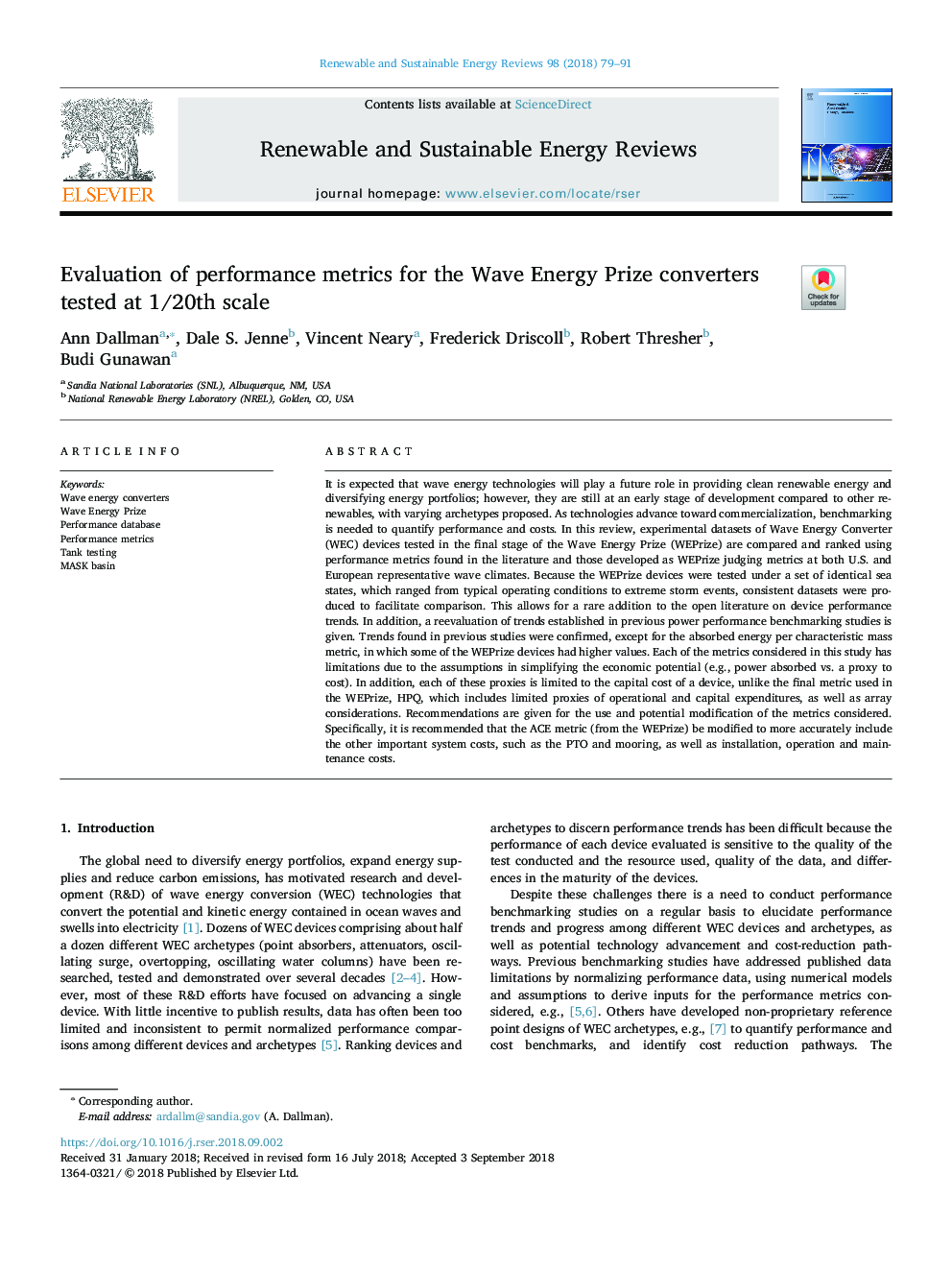| Article ID | Journal | Published Year | Pages | File Type |
|---|---|---|---|---|
| 10156352 | Renewable and Sustainable Energy Reviews | 2018 | 13 Pages |
Abstract
It is expected that wave energy technologies will play a future role in providing clean renewable energy and diversifying energy portfolios; however, they are still at an early stage of development compared to other renewables, with varying archetypes proposed. As technologies advance toward commercialization, benchmarking is needed to quantify performance and costs. In this review, experimental datasets of Wave Energy Converter (WEC) devices tested in the final stage of the Wave Energy Prize (WEPrize) are compared and ranked using performance metrics found in the literature and those developed as WEPrize judging metrics at both U.S. and European representative wave climates. Because the WEPrize devices were tested under a set of identical sea states, which ranged from typical operating conditions to extreme storm events, consistent datasets were produced to facilitate comparison. This allows for a rare addition to the open literature on device performance trends. In addition, a reevaluation of trends established in previous power performance benchmarking studies is given. Trends found in previous studies were confirmed, except for the absorbed energy per characteristic mass metric, in which some of the WEPrize devices had higher values. Each of the metrics considered in this study has limitations due to the assumptions in simplifying the economic potential (e.g., power absorbed vs. a proxy to cost). In addition, each of these proxies is limited to the capital cost of a device, unlike the final metric used in the WEPrize, HPQ, which includes limited proxies of operational and capital expenditures, as well as array considerations. Recommendations are given for the use and potential modification of the metrics considered. Specifically, it is recommended that the ACE metric (from the WEPrize) be modified to more accurately include the other important system costs, such as the PTO and mooring, as well as installation, operation and maintenance costs.
Related Topics
Physical Sciences and Engineering
Energy
Renewable Energy, Sustainability and the Environment
Authors
Ann Dallman, Dale S. Jenne, Vincent Neary, Frederick Driscoll, Robert Thresher, Budi Gunawan,
